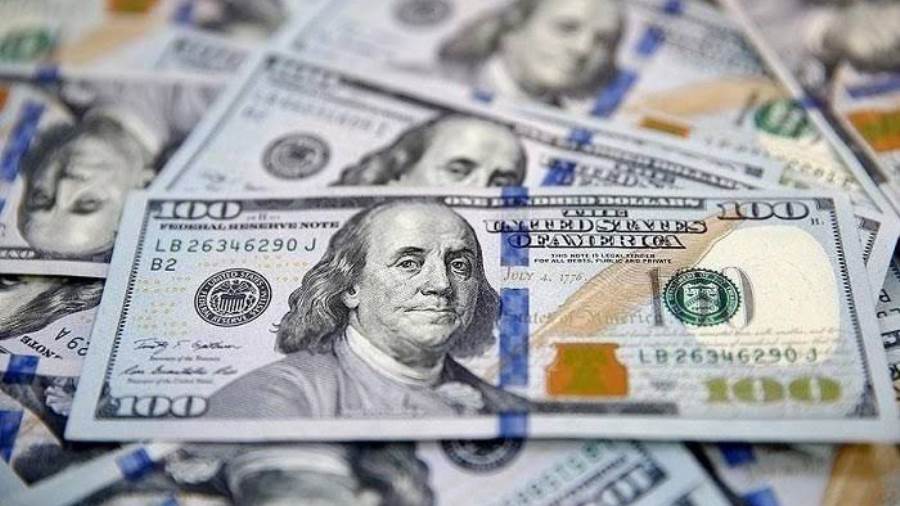Dollar Slides Amid Trade Tensions and Rising Fiscal Concerns

The U.S. dollar opened the week on a weaker note, reflecting renewed market anxiety over protectionist trade policies and their potential to curb economic growth while fueling inflationary pressures.

This downward movement followed an announcement to double tariffs on steel and aluminum imports to 50% starting June 4th — a decision that deepened uncertainty surrounding global trade relations and their impact on the U.S. economy.
Market Performance
As of 00:23 GMT, the dollar fell 0.3% to 143.57 yen, retreating from last week's gains that exceeded 1%. The euro climbed 0.2% to $1.1372, while the British pound rose 0.3% to $1.3489. The Australian dollar also gained 0.3% to reach $0.6454.
The U.S. dollar index — which tracks the greenback against six major currencies — slipped 0.2% to 99.214.
Underlying Pressures
The dollar has been under consistent pressure in recent weeks, driven by escalating trade tensions. It fell by 3% against major currencies following early April tariff hikes, and another 1.9% after new threats of a 50% tariff on European imports.
Despite modest gains last week amid revived EU trade talks and a temporary U.S. court ruling blocking portions of the tariff policy, volatility remains elevated. The legal uncertainty surrounding executive authority to impose tariffs adds another layer of market concern.
Fiscal and Legislative Outlook
Further weighing on the dollar is rising investor unease over U.S. fiscal stability. A recent wave of asset sell-offs — including equities and Treasury bonds — reflects growing skepticism. This sentiment is particularly acute as the U.S. Senate begins reviewing a comprehensive tax and spending bill projected to add $3.8 trillion to the federal debt over the next decade. That would push the total beyond its current $36.2 trillion level.
The dollar’s recent decline highlights a convergence of economic, trade, and fiscal pressures. Continued tariff escalation, coupled with legal and policy uncertainties, may intensify currency volatility in the months ahead — especially as markets monitor interest rate expectations and fiscal negotiations in Washington.
























